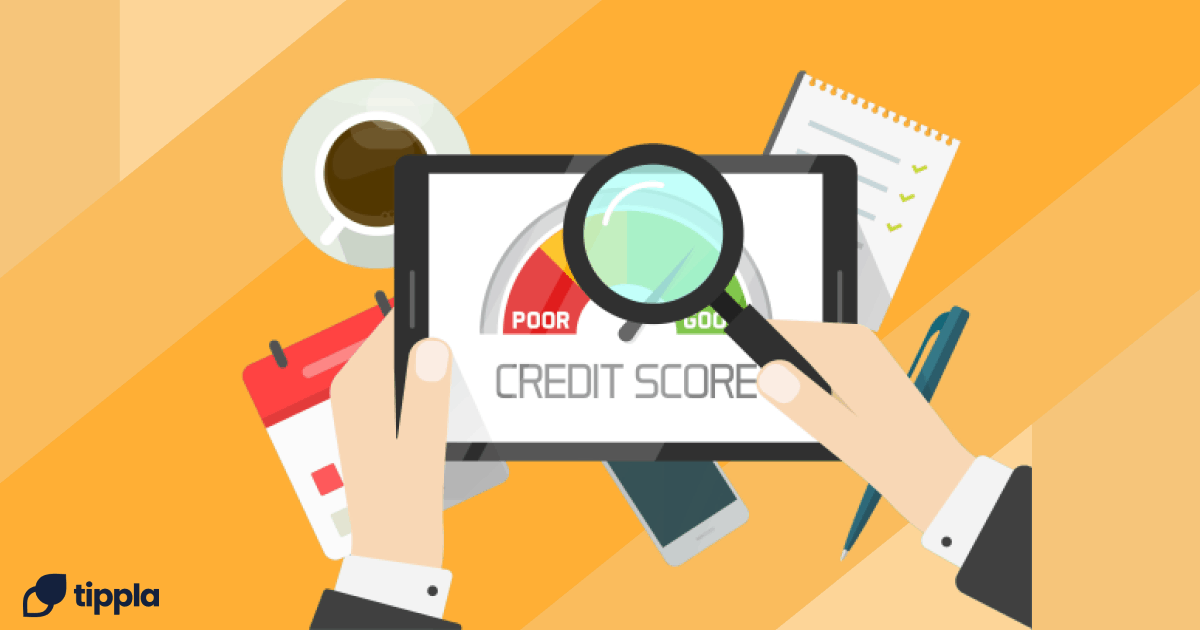Published in December 16, 2024
How to Plan a Budget-Friendly Vacation

Taking a well-deserved break is crucial for maintaining both mental and physical health, offering a much-needed escape from the daily grind. Planning a holiday within a budget doesn’t just make it more accessible—it also adds to the enjoyment by reducing financial stress. Whether you’re eyeing a road trip along the Great Ocean Road or a camping adventure in the Blue Mountains, a bit of preparation can go a long way.
From finding affordable accommodations on platforms like Stayz to taking advantage of off-peak travel times, there are specific steps you can follow to make your getaway both memorable and cost-effective.
Setting a Vacation Budget
Determining Overall Budget
Start by assessing your current financial situation. Consider your monthly income, fixed expenses like rent and bills, and how much you can realistically set aside for your trip. Use tools like ASIC’s MoneySmart budget planner to get a clear picture of your finances. For additional tips and strategies, check out this comprehensive holiday budgeting guide. It’s crucial to factor in not just the upfront costs but also any hidden expenses that might come up, such as travel insurance or currency exchange fees. Aim to create a buffer in your budget for unexpected costs, ideally around 10-15% of your total planned expenses.
Allocating Funds
Once you’ve set your total budget, break it down into key categories, starting with essentials such as travel, accommodation, and food. This helps ensure that your core expenses are covered before allocating funds to non-essentials. For example, if your budget for a two-week vacation is $4,000, you might allocate $1,500 for flights, $1,200 for accommodation, $800 for food, and $500 for activities. According to budgeting advice from financial experts, this type of breakdown helps prevent overspending by prioritizing essential costs first.
When choosing accommodation, compare options on platforms like Airbnb or Stayz to find the best deals. Be sure to factor in transportation costs at your destination, such as car hire, public transport, or rideshare services. It’s also wise to research activities in advance and prioritize them, assigning funds accordingly. Many popular tourist destinations offer city passes that bundle attractions, potentially saving you money in the long run.
Savings Tips
Start saving early by setting up a dedicated savings account, preferably one with a high interest rate. Look for accounts like ING’s Savings Maximiser or UBank’s Save Account, which reward regular contributions. Automate your savings by setting up a direct debit from your everyday account. Consider cutting back on discretionary spending—reduce eating out or pause subscription services for a few months. Another tip is to use cashback apps like ShopBack or Cashrewards when booking travel or accommodation. These apps offer a percentage of your spending back, which can go straight into your vacation fund. Finally, selling unused items around the house or taking on a side gig can give your savings a quick boost.
Choosing a Destination
Research Affordable Destinations
Start by considering destinations that offer the best value for your budget. Websites like Skyscanner or Flight Centre often have lists of the cheapest places to fly to at any given time. For local travel, look at destinations like Tasmania or the Northern Territory, where you can experience breathtaking landscapes without spending a fortune. For a more tropical getaway, consider Southeast Asia, where your dollar stretches further, especially in countries like Vietnam or Indonesia. Keep an eye out for package deals on sites like Webjet, which sometimes bundle flights and accommodation at a discounted rate.
Off-Peak Travel
Travelling during off-peak seasons can significantly reduce your costs. For instance, visiting Queensland in the shoulder seasons—April to May or September to November—can save you money on flights and accommodation while still enjoying pleasant weather. Off-peak travel also means fewer crowds, allowing you to explore popular attractions like the Great Barrier Reef or Uluru without the hassle. Additionally, some travel companies offer discounts during these periods to attract more visitors, so it’s worth checking deals on platforms like Wotif or Expedia.
Local vs. International Travel
When deciding between local and international travel, consider both the costs and benefits. Local travel can be more budget-friendly, especially when you factor in the absence of international flight costs. A road trip along the Great Ocean Road or a getaway to the Blue Mountains can offer stunning experiences without breaking the bank. On the other hand, international travel can provide a more diverse cultural experience and sometimes be surprisingly affordable, especially in destinations where the cost of living is lower. Southeast Asia, for example, offers a rich cultural experience at a fraction of the cost of a European holiday. However, remember to factor in additional expenses like visas, travel insurance, and vaccinations when planning an overseas trip.
Finding Affordable Transportation
Flight Deals and Hacks
To find the cheapest flights, use comparison sites like Skyscanner or Google Flights. These platforms allow you to set up alerts for price drops on specific routes. Another tip is to book flights mid-week, as airlines often release discounts on Tuesdays or Wednesdays. For domestic travel, consider budget airlines like Jetstar or Virgin Australia, but watch out for extra fees like baggage or seat selection. Use tools like Webjet’s price guarantee to get the best deal.
Alternative Transportation
For budget travel, buses and trains are excellent alternatives. Companies like Greyhound offer long-distance bus services that are often cheaper than flights. If you’re open to road trips, renting a car through platforms like Car Next Door can be cost-effective, especially if you’re travelling with a group. Road trips also give you the flexibility to explore off-the-beaten-path destinations at your own pace, potentially saving on accommodation by camping or using caravan parks.
Maximising Rewards Programs
If you’re a frequent traveller, leveraging rewards programs can significantly cut down transportation costs. Qantas Frequent Flyer and Virgin Velocity programs allow you to accumulate points that can be redeemed for flights, upgrades, or even accommodation. Consider using a credit card that offers travel points, but be mindful of interest rates and fees. Always check for point promotions or bonus offers when booking flights to maximise your rewards.
Budget Accommodation Options
Hotel Alternatives
Hostels are a popular choice for budget travellers, especially in cities like Sydney and Melbourne. YHA Australia offers clean and well-located hostels with options for private rooms if you want more privacy. If you prefer something more comfortable, look into vacation rentals through platforms like Airbnb, where you can find entire apartments or houses that may be cheaper than hotels, especially if you’re travelling with others. For a unique experience, consider home exchanges via websites like HomeExchange, where you can stay in someone’s home while they stay in yours.
Booking Strategies
To get the best deals, book your accommodation as early as possible, especially during peak travel seasons like summer. However, if you’re flexible, last-minute deals can also save you money—use apps like HotelTonight for discounted rates. Compare prices across multiple platforms like Booking.com and directly on hotel websites to ensure you’re getting the lowest price. For an extra layer of savings, use cashback sites when booking online.
Loyalty Programs and Discounts
Join hotel loyalty programs like Marriott Bonvoy or Accor Live Limitless to accumulate points for free nights or room upgrades. If you’re a frequent traveller, consider signing up for membership-based discount sites like Luxury Escapes, which offer exclusive deals on accommodation. Additionally, always check for any student, senior, or member discounts you may qualify for.
Saving on Food and Dining
Self-Catering vs. Eating Out
Balancing self-catering and dining out can significantly reduce your expenses. Opt for self-catering by booking accommodations with kitchen facilities. Cooking breakfast and packing snacks or lunch allows you to splurge on dinner at local restaurants. Woolworths and Coles are convenient for grocery shopping, and you can often find meal deals that are cheaper than eating out. Reserve dining out for special occasions or to experience local cuisine you can’t replicate at home.
Local Markets and Street Food
Exploring local markets, like Queen Victoria Market in Melbourne or Bondi Farmers Market in Sydney, gives you access to fresh produce, meats, and artisanal goods at lower prices than supermarkets. These markets often have food stalls where you can enjoy affordable, authentic dishes. Street food festivals and pop-ups are also great for tasting local flavours without breaking the bank.
Meal Planning
Planning your meals is key to staying within budget while travelling. Start by planning a few dinners and breakfasts for the week, incorporating versatile ingredients. Meal prepping saves time and money, ensuring you have something ready to eat when you return from a day of exploring. Apps like Mealime or Paprika can help streamline your planning and grocery shopping process, reducing impulse buys and food waste.
Affordable Activities and Sightseeing
Free and Low-Cost Attractions
Explore Sydney’s Royal Botanic Garden or Melbourne’s Royal Park, where you can enjoy nature without spending a cent. Museums like the National Gallery of Victoria (NGV) in Melbourne offer free entry to their permanent collections. Similarly, Brisbane’s Queensland Art Gallery (QAGOMA) also has free exhibits, providing an enriching cultural experience without the price tag.
Discount Passes
Consider purchasing a Sydney Attraction Pass or Melbourne’s City Sightseeing Pass. These passes bundle entry to multiple top attractions at a discounted rate, allowing you to explore places like the Sydney Opera House, SEA LIFE Sydney Aquarium, or Melbourne Zoo without overextending your budget.
DIY Tours
Create your walking tours using apps like VoiceMap or the GPSmyCity app. These tools offer free or low-cost guided tours, helping you explore neighbourhoods like Sydney’s The Rocks or Melbourne’s laneways at your own pace. For a more immersive experience, check local tourism websites for downloadable maps and suggested itineraries.
Smart Money Management While Traveling
Currency Exchange Tips
To get the best value for your money, avoid exchanging currency at airports or hotels due to their high fees. Instead, use local currency exchange services or ATMs, which often offer better rates. For convenience, consider using multi-currency travel cards such as those offered by ANZ or Commonwealth Bank, which allow you to lock in exchange rates before you travel and reduce conversion costs.
Using Credit Cards Wisely
Opt for credit cards with no foreign transaction fees like the ANZ Travel Adventures Card or the Bankwest Zero Platinum Mastercard. These cards help you avoid extra charges on your purchases and often come with rewards like cashback or travel points. Always pay off your balance in full to avoid interest charges and additional fees.
Tracking Spending
To avoid overspending, keep a daily budget for your expenses. Use budgeting apps like Pocketbook or MoneyBrilliant, which can help you track your spending in real-time. Regularly review your transactions to stay within your budget and avoid unexpected financial strain.
Insurance and Safety Considerations
Travel Insurance
Travel insurance is crucial for safeguarding against unexpected issues such as medical emergencies, trip cancellations, or lost luggage. For cost-effective coverage, compare policies from providers like InsureandGo or 1Cover. Look for comprehensive plans that include medical evacuation, trip interruption, and coverage for high-risk activities if you plan to engage in them.
Websites like Compare the Market or Finder offer comparison tools to find affordable options tailored to your needs.
Health and Safety
To stay safe and healthy while travelling, follow these budget-friendly tips:
- Vaccinations: Check if any vaccinations are required or recommended for your destination to avoid costly medical treatment later.
- Food and Water: Stick to bottled water and avoid street food if you have concerns about hygiene to prevent foodborne illnesses.
- Local Emergency Numbers: Familiarise yourself with local emergency services numbers and healthcare facilities.
Backup Plans
Prepare for unexpected expenses by:
- Carrying a Spare Card: Have a backup credit card separate from your primary one in case of loss or theft.
- Emergency Fund: Set aside an emergency fund for unforeseen expenses like medical emergencies or unexpected trip changes.
- Travel Documents: Keep copies of important documents, including your insurance policy, passport, and emergency contact numbers, in a secure location.
Sustainable and Ethical Travel on a Budget
Eco-Friendly Choices
Travelling sustainably doesn’t have to break the bank. Here are some cost-effective strategies:
- Opt for Public Transport: Instead of taxis or rideshares, use local buses or trains. Many cities offer affordable multi-ride passes that can save you money and reduce your carbon footprint.
- Stay in Eco-Friendly Accommodations: Look for hotels or hostels that have green certifications. Websites like EcoHotels list eco-conscious stays that might not be much more expensive than conventional options.
- Bring Reusables: Carry a reusable water bottle and shopping bag to cut down on single-use plastics, which can also help you avoid extra charges for bottled water and bags.
Supporting Local Economies
Support local businesses while sticking to a budget:
- Eat at Local Cafés and Markets: Dining at local eateries or street markets can be cheaper than touristy restaurants and provides a genuine taste of the culture.
- Shop at Local Markets: Purchase souvenirs and essentials from local markets rather than chain stores. This supports the community and often offers better prices.
Minimising Carbon Footprint
Reducing your environmental impact involves:
- Choose Direct Flights: If possible, book direct flights to minimise your carbon emissions from multiple take-offs and landings.
- Offset Your Carbon Emissions: Consider contributing to carbon offset programs. Some airlines offer this option during booking or you can find independent programs online.
When planning a budget-friendly vacation, focus on setting a clear budget, choosing a cost-effective destination, and booking in advance to secure the best deals. Prioritise flexibility in your plans to adapt to any changes and take advantage of discounts. Consider travelling during the off-season and utilising public transport to save on expenses. By carefully managing these elements, you can achieve a memorable trip without overspending. Start planning early and save strategically to strike the perfect balance between cost and a fulfilling travel experience. Remember, with thoughtful budgeting and preparation, a fantastic vacation is well within reach.
While we at Tippla will always do our best to provide you with the information you need to financially thrive, it’s important to note that we’re not debt counsellors, nor do we provide financial advice. Be sure to speak to your financial services professional before making any decisions.
Related articles


The Role of Interest Rate Caps in Loan Products
13/06/2024
Interest rate caps have a significant impact on loan...

What Goes on My Credit Report & For How Long?
19/10/2021
Your credit report is an important document and it...

The Benefits of Setting Up Automatic Savings Plans
12/09/2024
Automatic savings plans are a practical tool that helps...
Subscribe to our newsletter
Stay up to date with Tippla's financial blog